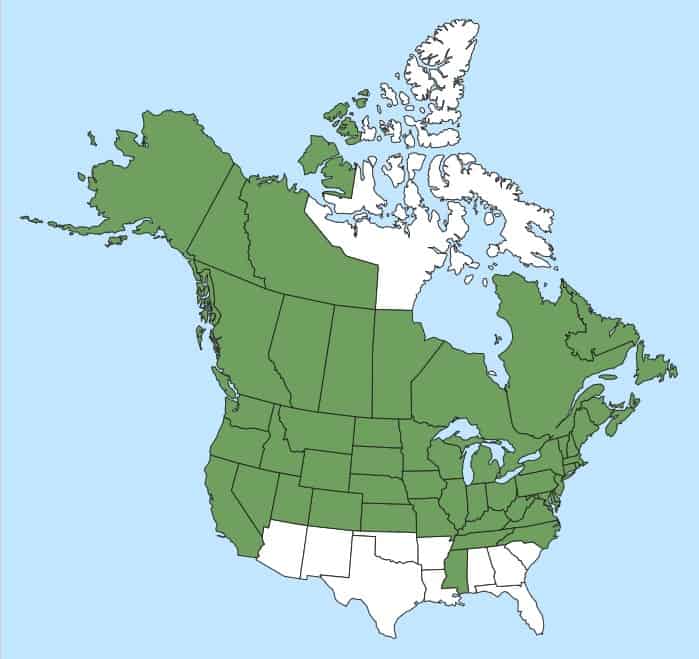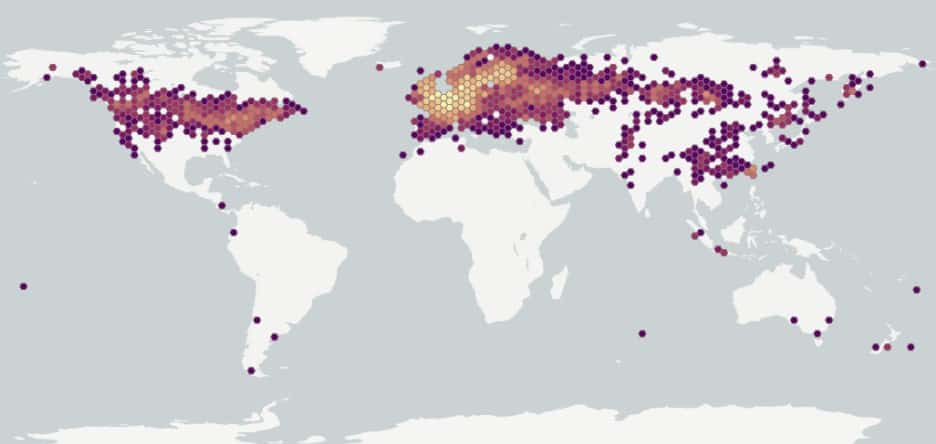Sonchus arvensis
Overview
Aperçu
Regulation :
Remarques Réglementation:
- CFIA Weed Seeds Order - Class 2: Primary Noxious Weed Seeds
Regulation Notes:
Distribution :
Répartition :
Native to Europe and temperate Asia, as far as the Russian Far East. Introduced in North America, Argentina, Chile, Fiji, New Caledonia, Australia, New Zealand, Japan, Indonesia and the Philippines (USDA-ARS 2020). In the United States it occurs throughout except for a few southern states (Kartesz 2015). Occurs in all provinces and territories of Canada (Brouillet et al. 2010+).
Habitat and Crop Association :
Habitat et Cultures Associées :
Cultivated fields, pastures, meadows, lawns, gardens, fences, shores, ditches, forests, roadsides and other disturbed areas (Lemna and Messersmith 1990; Darbyshire 2003). A weed of annual crops in temperate areas, notably cereals, Zea mays (corn), oilseed crops, Beta vulgaris subsp. vulgaris (sugarbeet), Solanum tuberosum (potatoes) and vegetables (CABI 2020).
Economic Use, cultivation area, and Weed Association :
Utilisation économique, zone de culture et association de mauvaises herbes :
Duration of Life Cycle :
Durée du cycle vital:
Perennial
Dispersal Unit Type :
Type d’unité de dispersion :
Achene
General Information
RENSEIGNEMENTS GÉNÉRAUX
Sonchus arvensis was probably introduced into North America as a seed contaminant (Lemna and Messersmith 1990). A single plant may produce 3000-9750 seeds (Lemna and Messersmith 1990), which can remain viable in the soil for several years (CABI 2020).
.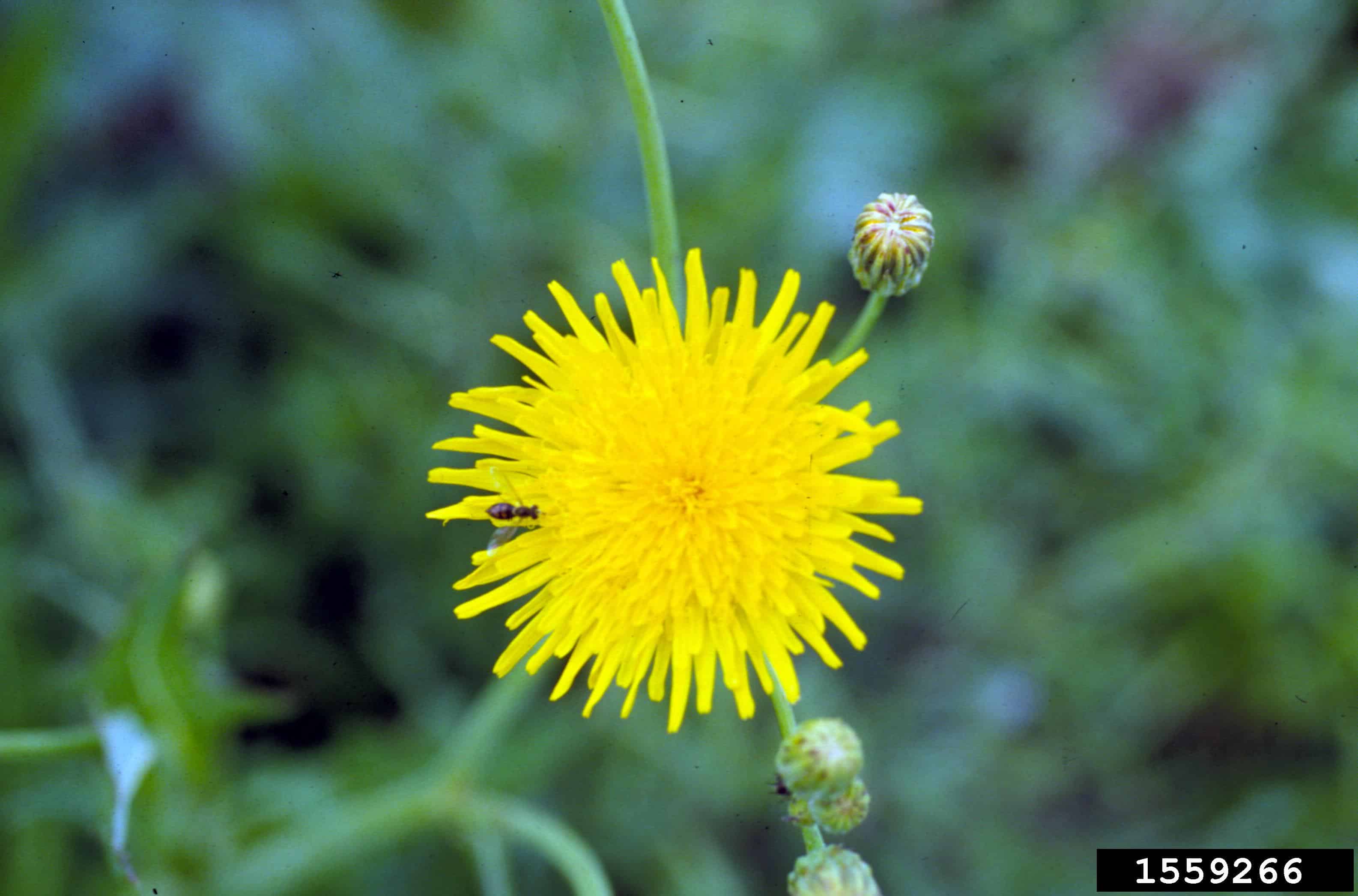
Sonchus arvensis flower (Theodore Webster, USDA Agricultural Research Service, Bugwood.org)
Identification
Identification
-
Achene
Size
- Achene length*: 2.3 – 3.8 mm; width: 0.7 – 1.5 mm
*Note: minimum and maximum of 10 achenes in a normal range of this species using image measurement (ISMA 2020)
Shape
- Long oval, oblong or egg-shaped achene, flattened
Surface Texture
- Achene has a rough surface with longitudinal ribs alternating with deep grooves and transverse ridges
Colour
- Achene is dull dark reddish brown
Other Features
Pappus
- Pappus of fine white hairs, 8.0 – 14.0 mm long (FNA 1993+) may be present, but is generally removed during processing
Achene end with pappus
- A ring of white tissue surrounds a small style remnant at the end with pappus
Achene end without pappus
- A ring of white tissue is found at the end of the achene attached to the flower head.
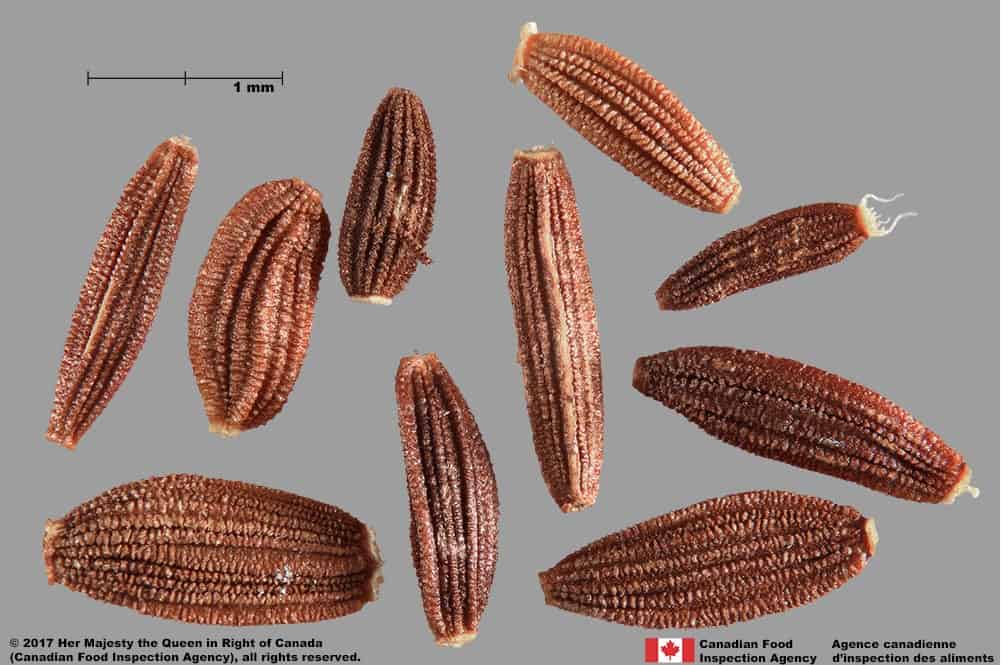
Perennial sow thistle (Sonchus arvensis) achenes

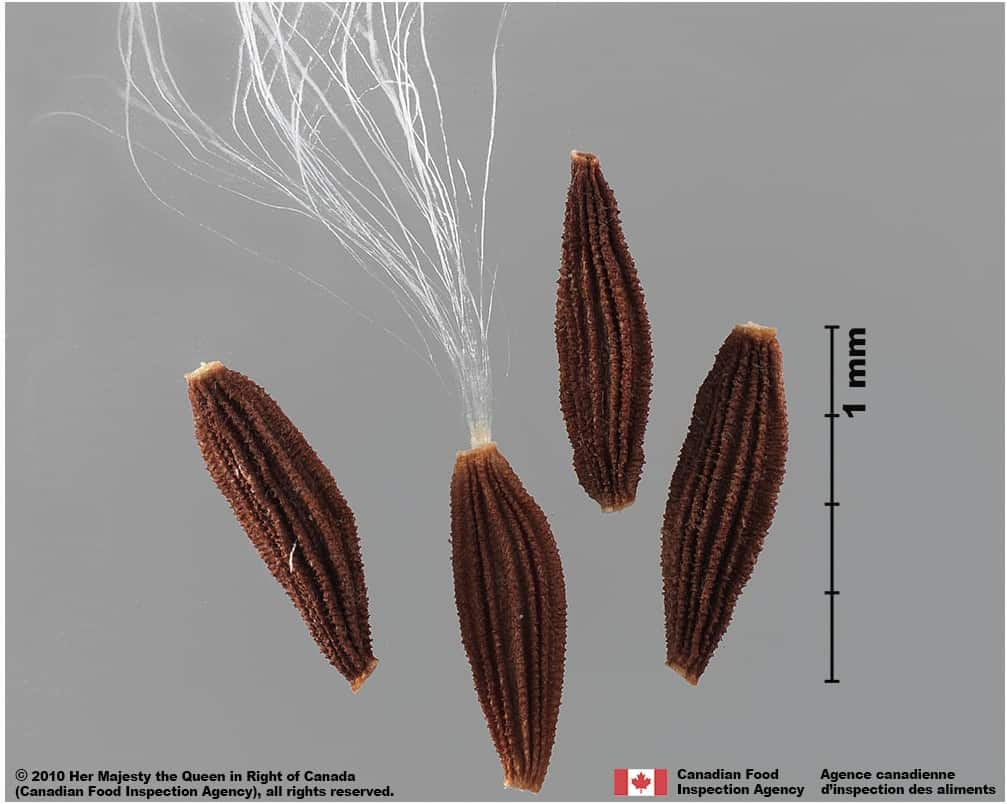
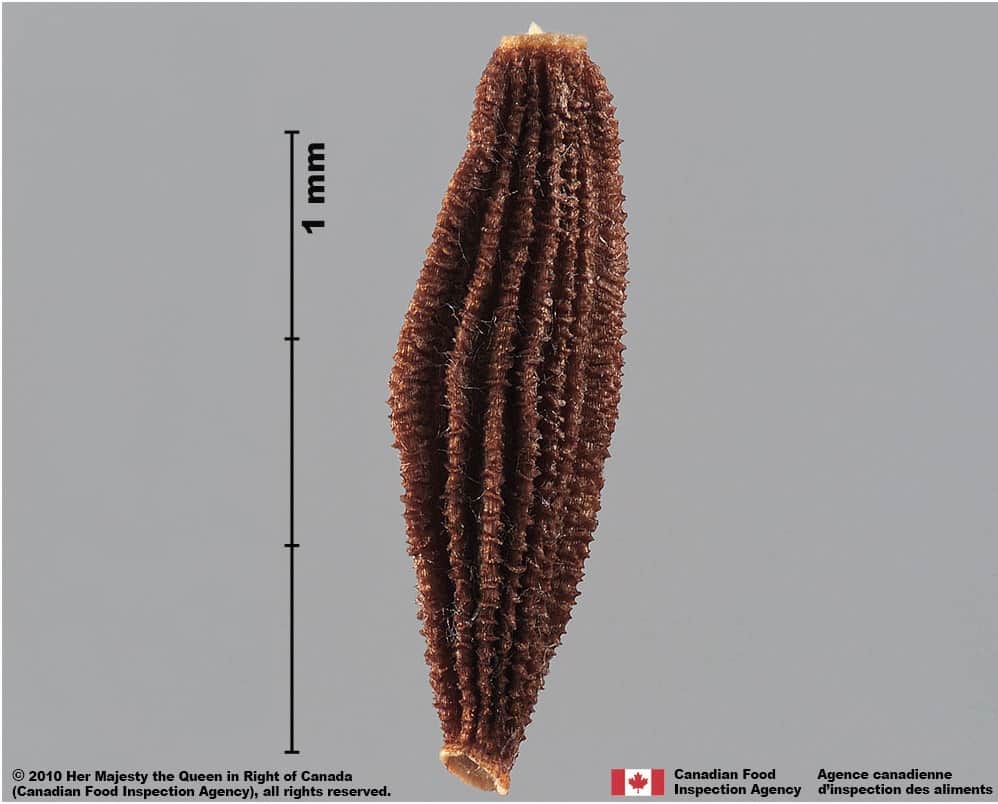
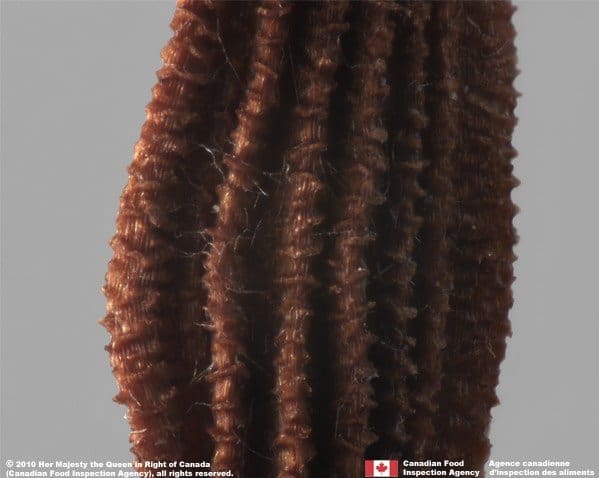
-
Seed
Size
- Seed similar to achene size
Shape
- Seed is oval shaped with one pointed end, flattened
Surface Texture
- Seed has a smooth texture
Colour
- Seed is a shiny straw yellow colour
Other Features
- Seed coat is translucent
-
Embryo
Size
- Embryo fills the seed
Shape
- Embryo is spatulate, axial position
Endosperm
- Endosperm absent, nutritive tissue stored in the cotyledons
Other Features
- Cotyledons are soft-textured
Identification Tips
CONSEILS POUR L’IDENTIFICATION
The achenes of S. arvensis can be distinguished from similar species by the dark brown colour, oblong shape and deep grooves between the longitudinal ribs.

Perennial sow thistle (Sonchus arvensis) achene




Additional Botany Information
AUTRES RENSEIGNEMENTS BOTANIQUES
Flowers/Inflorescence
- Florets yellow or yellow-orange and cylindrical shaped, involucral bracts glandular (FNA 1993+)
Vegetative Features
- Plants exudes a white latex sap when broken (Lemna and Messersmith 1990)
- Reproduces both by seeds and vegetatively through thickened roots. Roots are of 2 types: vertical rhizomes and horizontal, spreading stolons (Lemna and Messersmith 1990)
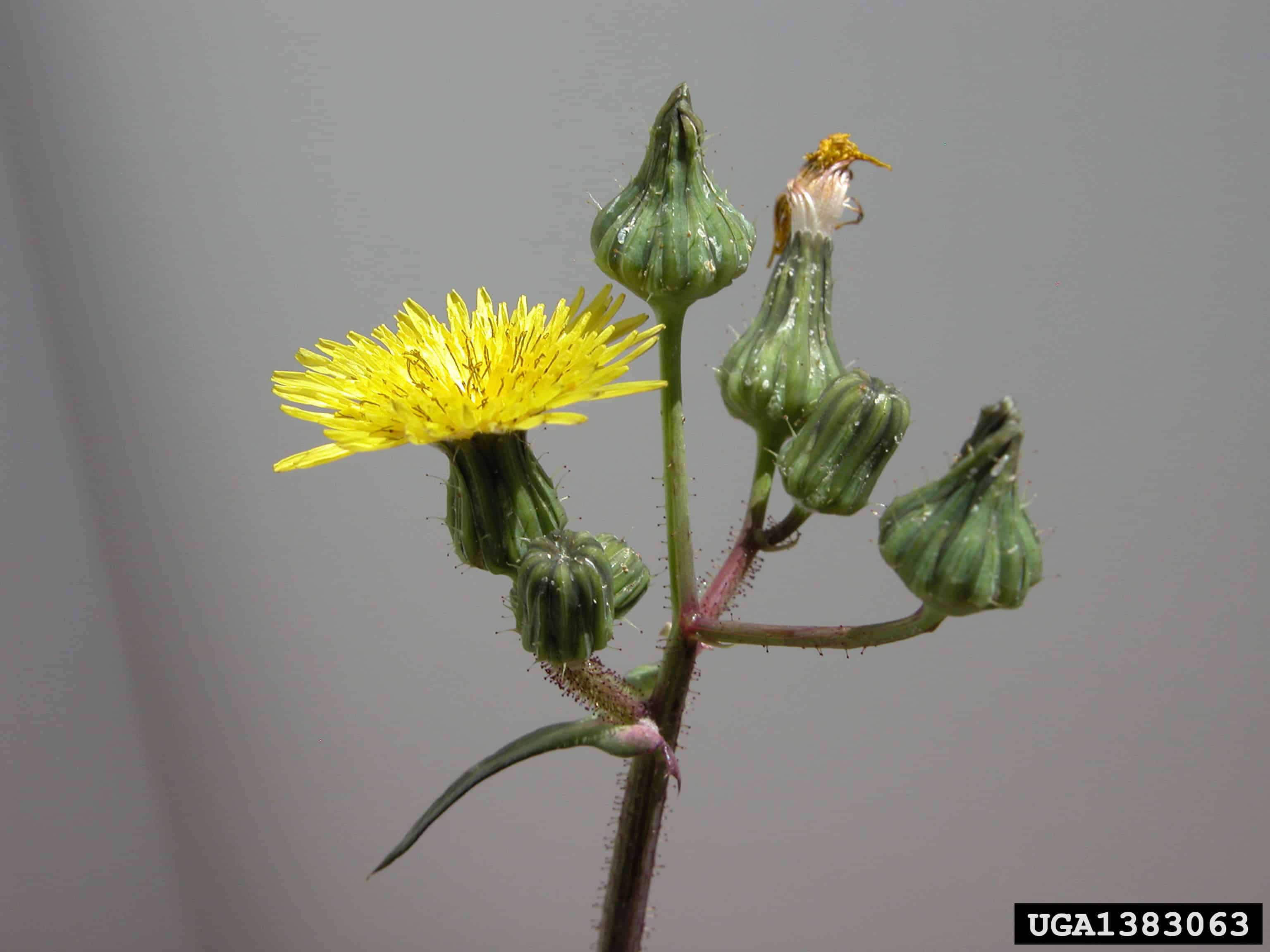
Sonchus arvensis flower and buds (Tom Heutte, USDA Forest Service, Bugwood.org)

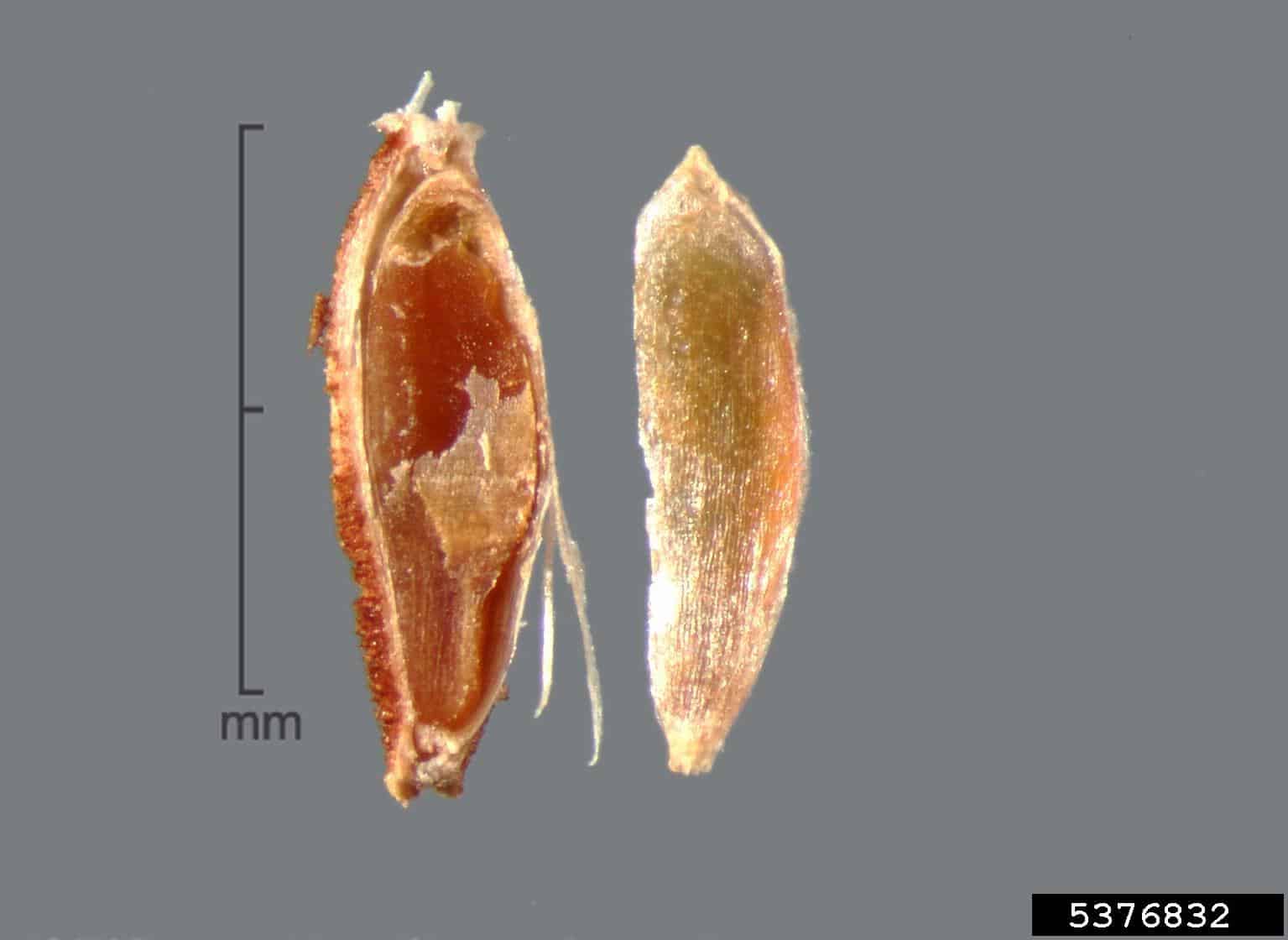
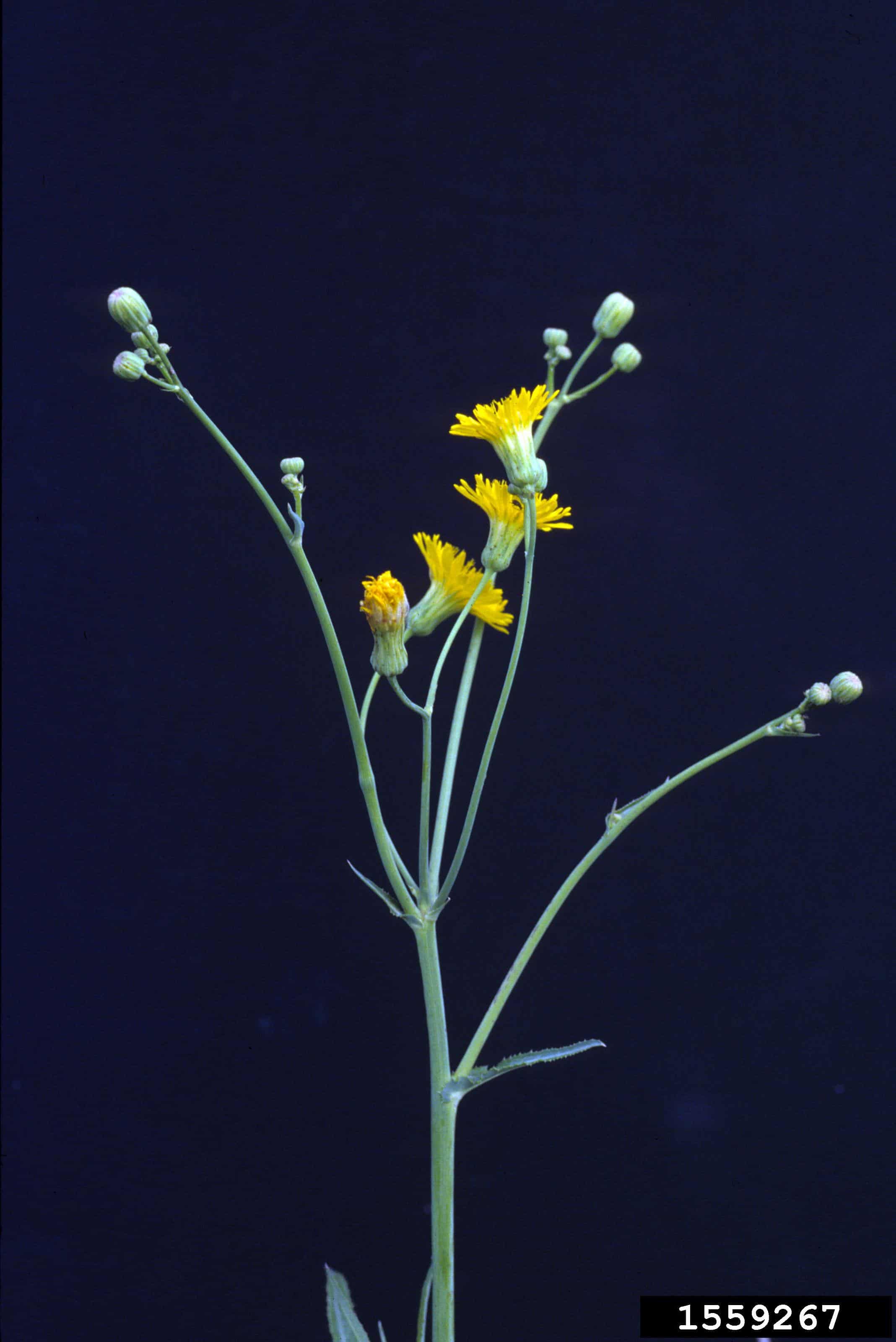
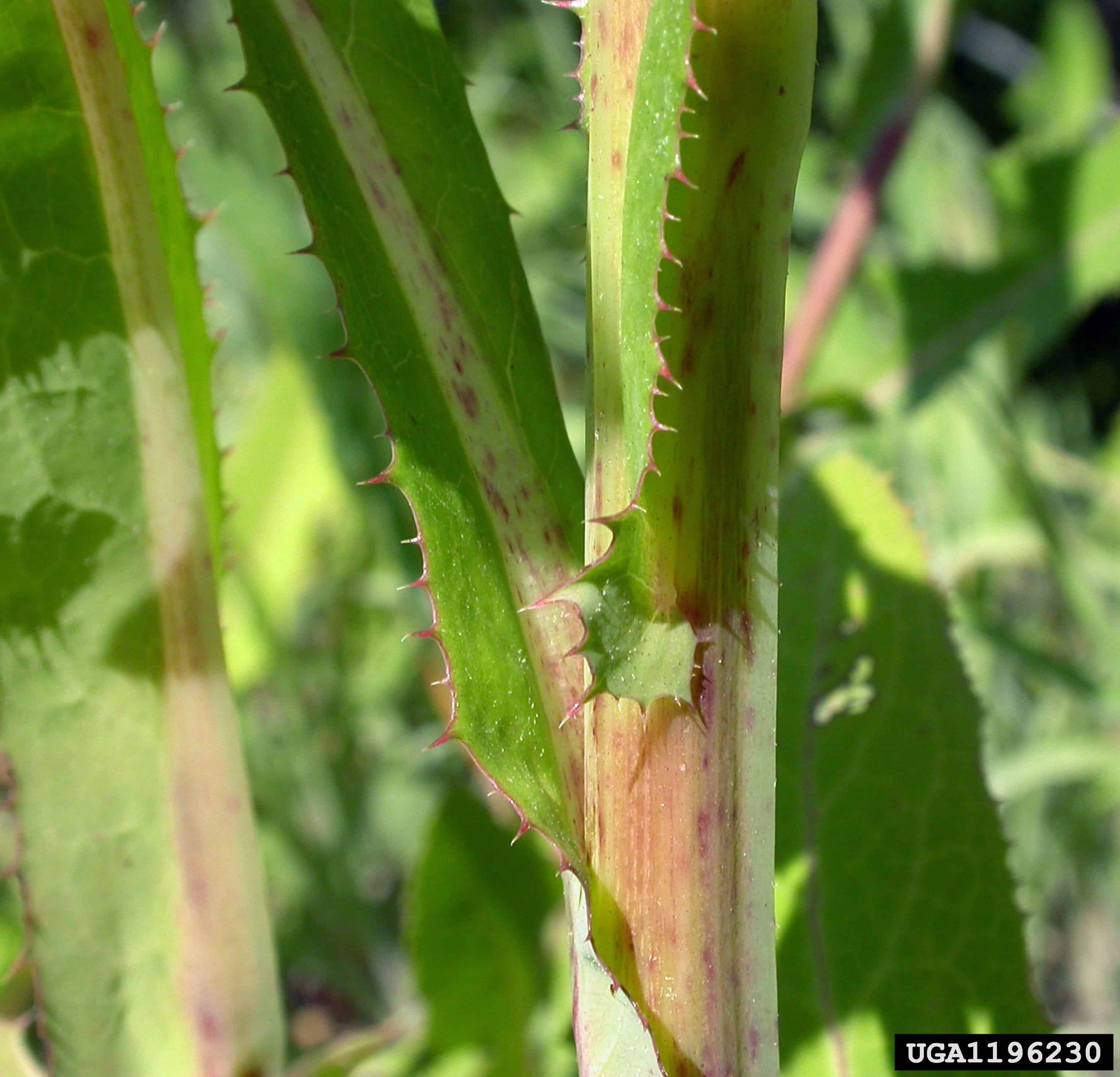
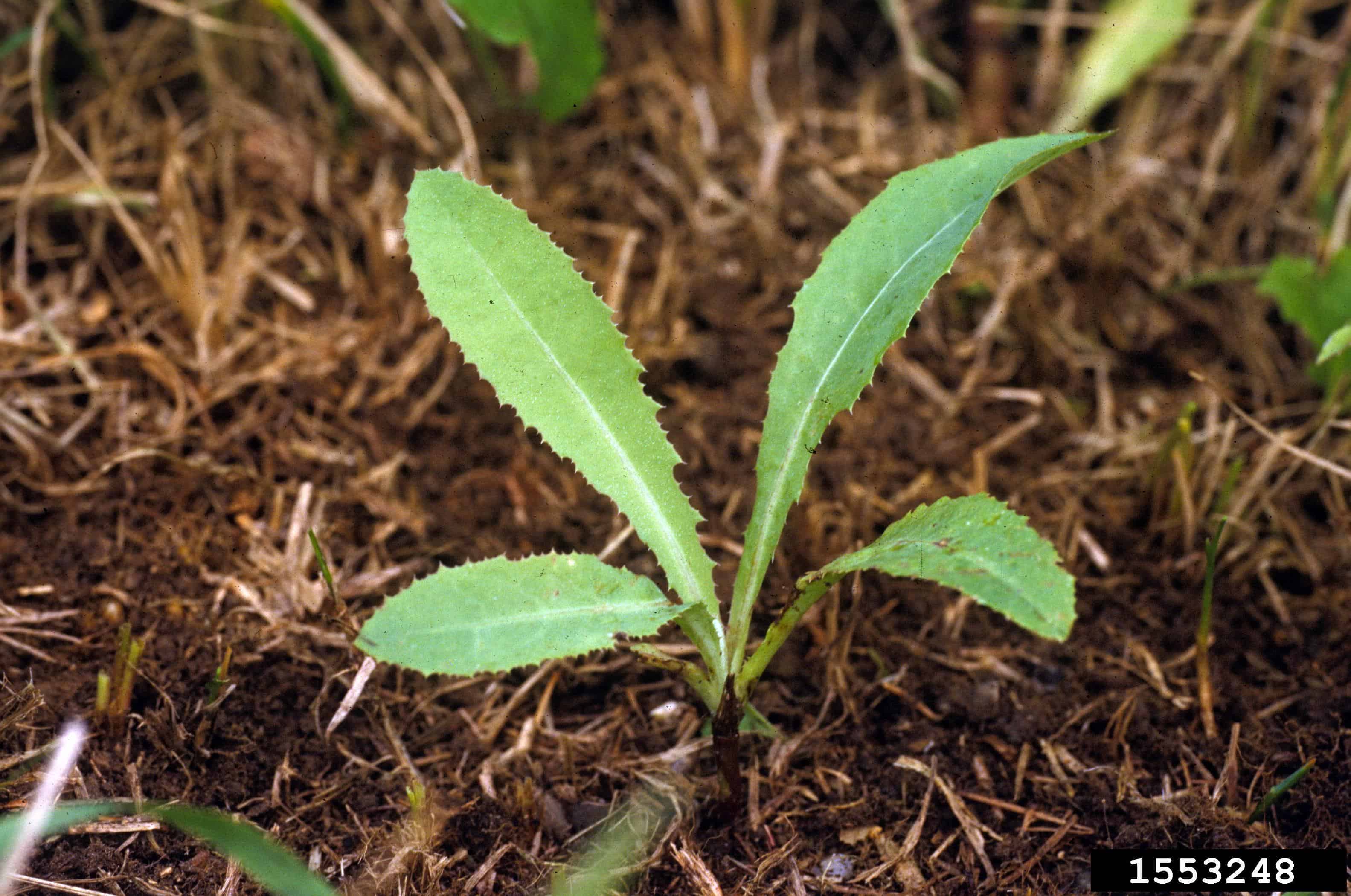
Similar Species
ESPÈCES SEMBLABLES
Similar species are based on a study of seed morphology of various species, and those with similar dispersal units are identified. The study is limited by physical specimen and literature availability at the time of examination, and possibly impacted by the subjectivity of the authors based on their knowledge and experience. Providing similar species information for seed identification is to make users aware of similarities that could possibly result in misidentification.
Sonchus oleraceus L. (annual sow thistle)
S. oleraceus achenes are a similar size (length*: 2.4 – 3.4 mm; width: 0.7 – 1.2 mm), teardrop shaped, narrower at the end opposite the pappus, a light brown colour with shallow surface wrinkling compared to S. arvensis achenes.
*Note: minimum and maximum of 10 achenes in a normal range of this species using image measurement (ISMA 2020)
Click to select species
Cliquez pour sélectionner les espèces
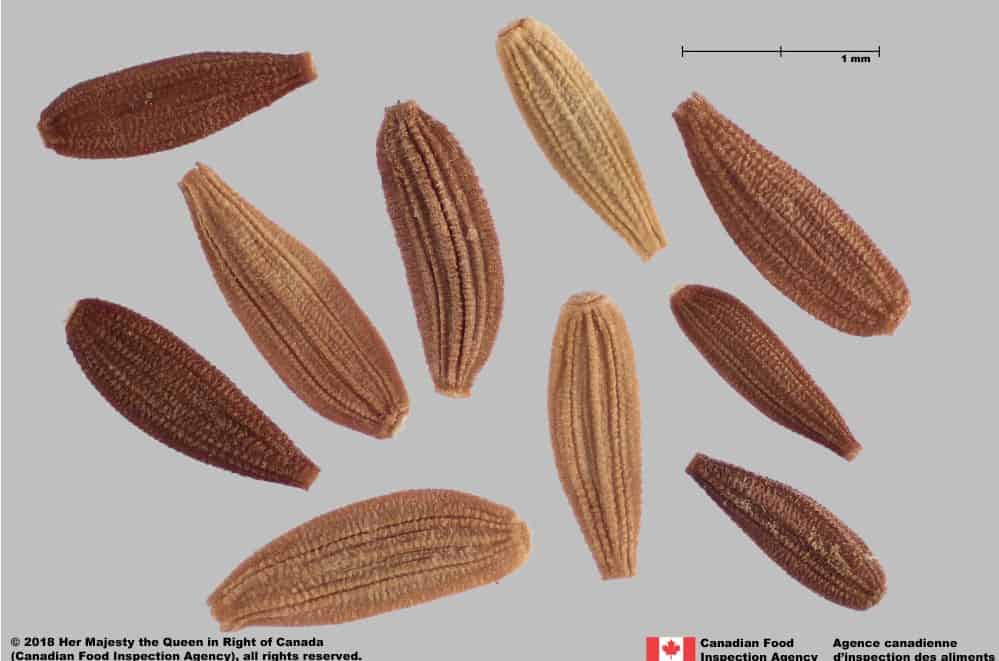
Sonchus oleraceus
Comparison Window
Fenêtre de comparaison
MAIN SPECIES
ESPÈCES PRINCIPALES
Sonchus arvensis

Sonchus arvensis
Asteraceae
Perennial sow thistle (Sonchus arvensis) achenes
MAIN SPECIES
ESPÈCES PRINCIPALES
Sonchus arvensis

Sonchus arvensis
Asteraceae
Perennial sow thistle (Sonchus arvensis) achenes
MAIN SPECIES
ESPÈCES PRINCIPALES
Sonchus arvensis

Sonchus arvensis
Asteraceae
Perennial sow thistle (Sonchus arvensis) achene
MAIN SPECIES
ESPÈCES PRINCIPALES
Sonchus arvensis

Sonchus arvensis
Asteraceae
Perennial sow thistle (Sonchus arvensis) achene, close-up of surface
SIMILAR SPECIES
ESPÈCES SEMBLABLES
Sonchus oleraceus

Sonchus oleraceus
Asteraceae
Annual sow thistle (Sonchus oleraceus) achenes
SIMILAR SPECIES
ESPÈCES SEMBLABLES
Sonchus oleraceus
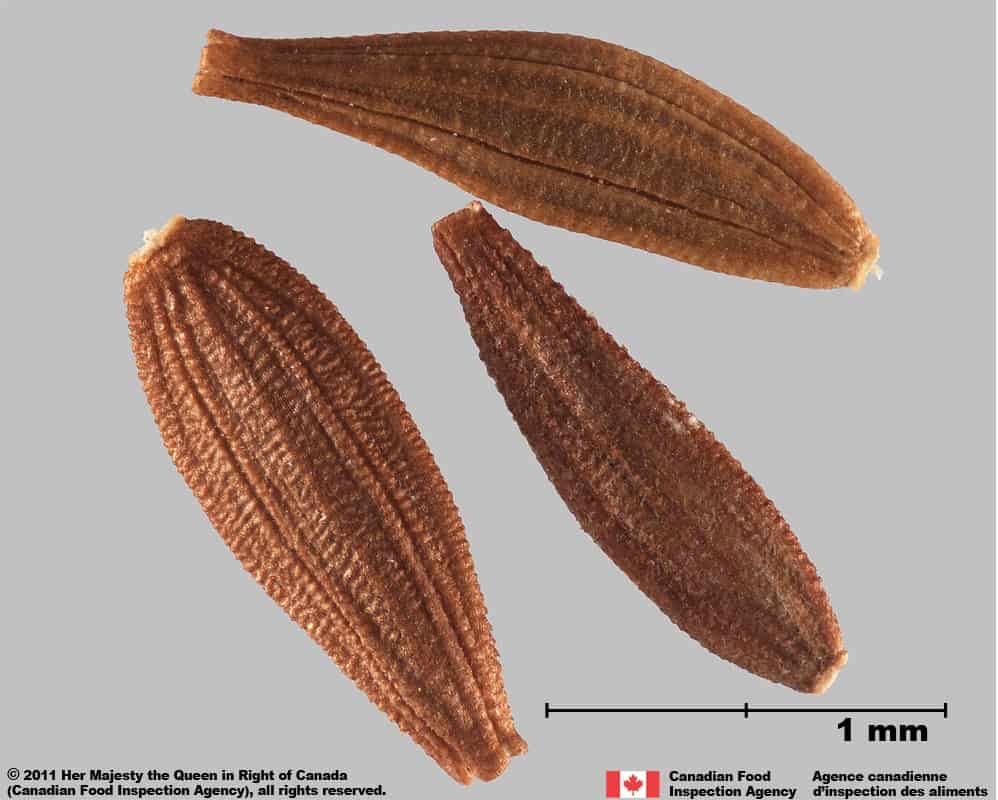
Sonchus oleraceus
Asteraceae
Annual sow thistle (Sonchus oleraceus) achenes
SIMILAR SPECIES
ESPÈCES SEMBLABLES
Sonchus oleraceus
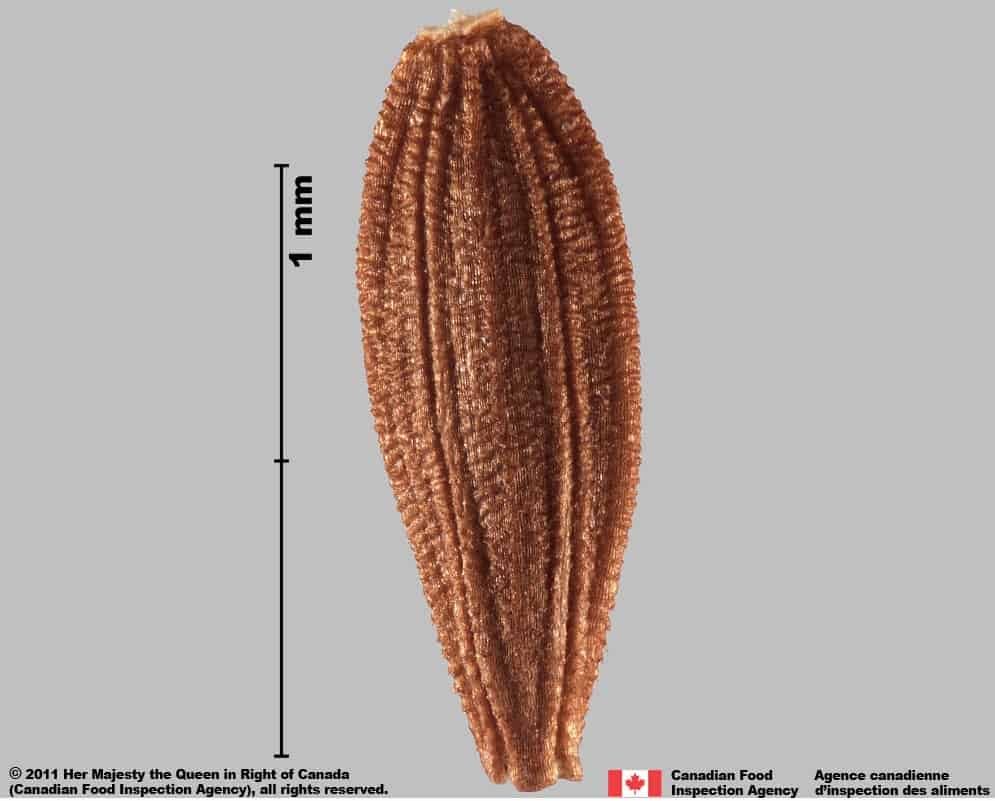
Sonchus oleraceus
Asteraceae
Annual sow thistle (Sonchus oleraceus) achene
Need ID Help?
Besoin d’aide pour l’identification?
Reference(s)
Référence(s)
Brouillet, L., Coursol, F., Meades, S. J., Favreau, M., Anions, M., Bélisle, P. and Desmet, P. 2010+. VASCAN, the database of vascular plants of Canada. http://data.canadensys.net/vascan/ Accessed November 24,2020.
Centre for Agriculture and Bioscience International (CABI). 2020. Invasive Species Compendium, CAB International, Wallingford, UK. https://www.cabidigitallibrary.org/journal/cabicompendium Accessed November 24, 2020.
Darbyshire, S. J. 2003. Inventory of Canadian Agricultural Weeds. Agriculture and Agri-Food Canada, Research Branch. Ottawa, ON.
The Flora of North America Association (FNA). 1993+. Flora of North America North of Mexico. 19+ vols. Flora of North America Editorial Committee, eds. New York and Oxford, http://beta.floranorthamerica.org/Main_Page; http://www.fna.org/FNA/ Accessed September 1, 2020.
Flora of North America (FNA) Editorial Committee, eds. 1993+. Flora of North America North of Mexico [Online]. 22+ vols. New York and Oxford. Accessed December 29, 2022.
Global Biodiversity Information Facility (GBIF) Secretariat. 2022. https://doi.org/10.15468/39omei Accessed via https://www.gbif.org/species/3105813 Accessed December 29, 2022.
Government of Canada (GC). 2016. Canadian Weed Seeds Order. https://laws-lois.justice.gc.ca/eng/regulations/SOR-2016-93/page-2.html (English) https://laws-lois.justice.gc.ca/fra/reglements/DORS-2016-93/page-2.html (French)
International Seed Morphology Association (ISMA). 2020. Method for Seed Size Measurement. Version 1.0. ISMA Publication Guide. https://www.idseed.org/authors/details/method_for_seed_size_measurement.html
Kartesz, J. T. 2015. The Biota of North America Program (BONAP). North American Plant Atlas. Chapel Hill, N.C., www.bonap.org/MapSwitchboard.html Accessed November 24, 2020.
Lemna, W. K. and Messersmith, C. G. 1990. The biology of Canadian weeds. 94. Sonchus arvensis L. Canadian Journal of Plant Science 70: 509-532.
U.S. Department of Agriculture-Agricultural Research Services (USDA-ARS). 2020. Germplasm Resources Information Network (GRIN), https://npgsweb.ars-grin.gov/gringlobal/taxon/taxonomysimple.aspx Accessed November 24, 2020.



